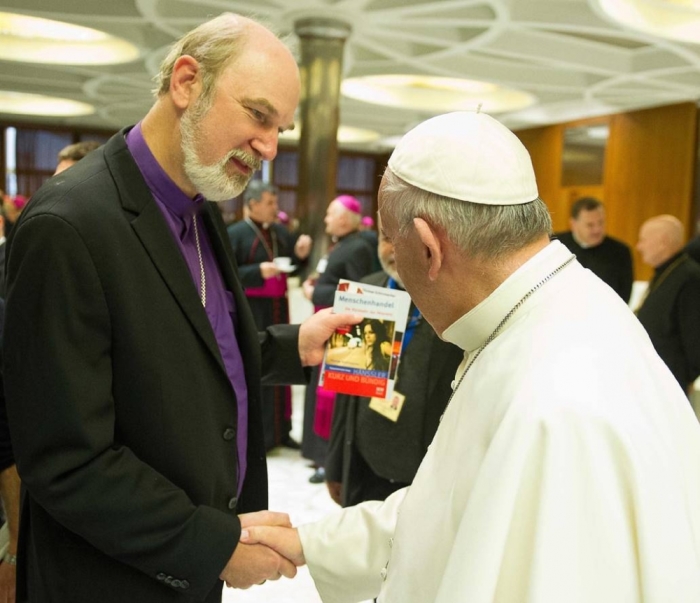10 Reasons Evangelicals Should Talk to Catholics

Editor's note: The Christian Post has arranged with noted evangelical Dr. Thomas Schirrmacher, an expert on and friend of The Catholic Church, to provide exclusive and rare coverage of the World Synod of the Catholic Church scheduled for October 3-24.
This Vatican Synod is generating great interest among Catholics and Evangelicals alike as Pope Francis continues to make overtures for increased cooperation with Evangelicals to protect religious freedom in a world of increased persecution of Christians.
Schirrmacher is president of the International Council of the International Society for Human Rights und Ambassador for Human Rights and executive chair of the Theological Commission of the World Evangelical Alliance, the largest evangelical association in the world.
Only one evangelical was invited to this year's three-week Synod: Dr. Schirrmacher. Below is his exclusive CP blog post from this historic meeting:
Here are my ten reasons for talking to Catholic leaders, including Pope Francis.
1. I want every Christian leader worldwide to know Evangelical positions, not from hear-say or the media, but first hand out of the mouth of an Evangelical.
Sometimes the result is things do change, but in the main it ends false conceptions about us and adds to understanding, which even can lead to an end of discrimination against us.
2. I want to hear firsthand what other Christian leaders and churches stand for and have to say. I do not want to follow hear-say or the media.
Thus, I learn a lot. Sometimes I learn that the other side is farer away from us than I thought. But more often, I learn what we have in common, that I have to listen more carefully or that I can learn a lot from them.
3. We need an ongoing dialogue on central theological questions, to get together wherever possible, and to have a clear grasp of where we disagree, why we disagree and how we want to handle those disagreements.
If we do not do this at the top level, we leave it to the street fight!
4. Friendship is a better place to discuss deep differences in theology than hatred or never to talking to each other at all.
This I learned from the namesake of our seminary, the Reformer Martin Bucer, who practiced this even in Reformation times, in the midst of very emotional language about each other.
5. I want Evangelical theology to be present wherever theology is adopted or discussed on a global level.
We need to be in the middle of the mess! This is true for Christian meetings worldwide, religious meetings, academic conferences and UN events. This strategy does not weaken our theology and conviction, but the opposite: it refines our ideas as we often have to give a clear description, particularly when we are weak in our arguments.
6. For decades I campaigned for a greater solidarity of the church at large with discriminated and persecuted Christians.
I do this especially with the top leadership of all churches and confessions. This was my recent message to the Pope in the plenary session of the Vatican Synod!
Persecution and martyrdom is the wrong place for discussing our differences. We have to cooperate as much as possible to combat persecution. This includes, of course, speaking openly about cases where Christians persecute Christians! The Pope has helped us in several cases in which this was the case against Evangelicals.
7. The Catholic Church has 1.2 billion members. The churches belonging to the member alliances of WEA have 600 million members. Together we make up three quarters of world Christianity.
We can add the World Council of Churches with the same size. Thus we run into each other every day worldwide, in politics, in academics, in economics, in social matters, in academic theology, in consultations. How could we not talk to each other? The world exspects us to talk!
8. There are major moral and socio-political questions where Catholics and Evangelicals stand together against evils in this world, sometimes with many others (eg human trafficking, corruption), sometimes being the only big ally of the other (e.g. abortion or same sex marriage).
To combat those evils together we need to talk.
9. And after all: We cannot give up the unity of the Church, even though for us it first of all is a unity in faith, not in organizational issues.
Unity is a long way to go and probably unachievable, but nevertheless we cannot omit a command by Jesus just because we think it will not work. The World Evangelical Alliance was founded for this very reason and cannot settle down with what we have achieved so far.
10. Last but not least, the New Testament commands us: "Live with all people in peace, as long it is on your side."
This does not exclude anyone.




























